
Om Puri was that rare actor who could carry a film on sheer power and versatility of his performance, says Avantika Bhuyan.
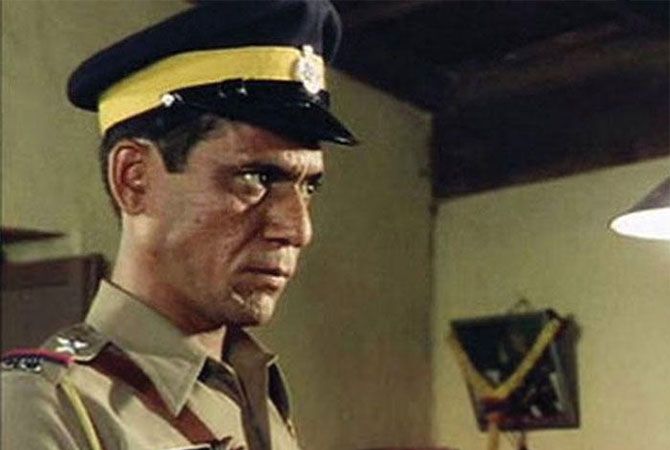
It was on a balmy evening in 1988 that I first came across this tall, lanky man with wide, red-rimmed eyes staring back at me from the television screen.
He wasn't saying a word and yet the fury emanating from his being, almost animalistic in nature, was palpable.
I was five at that time, a tad young to understand the conflict that underlay his character, but that haunting image of Om Puri from Tamas seared itself in my conscience.
In the ensuing years, powerful images from films such as Ardh Satya, Aakrosh, City of Joy and, of course, Jaane Bhi Do Yaaro kept piling up as layers on top of one another, forming a powerful bank of impressions and memories.
The quiet anguish that forms the core of Lahanya Bhiku's character, a victimised peasant in Govind Nihalani's Aakrosh, who finally gives vent to the repressed rage in a bloodcurdling scream at the end, is probably one of the most memorable moments of Indian cinema, as is his depiction of a cop helpless in the face of a corrupt, unjust system in Ardh Satya.
For some, this role remains one of the most realistic portrayals of a cop in Indian cinema.
"I have seen Puri's films, such as Ardh Satya at least 10 times in the theatre at Pragati Maidan, when I started studying at the National School of Drama in 1979," says Waman Kendre, who is now director, NSD.
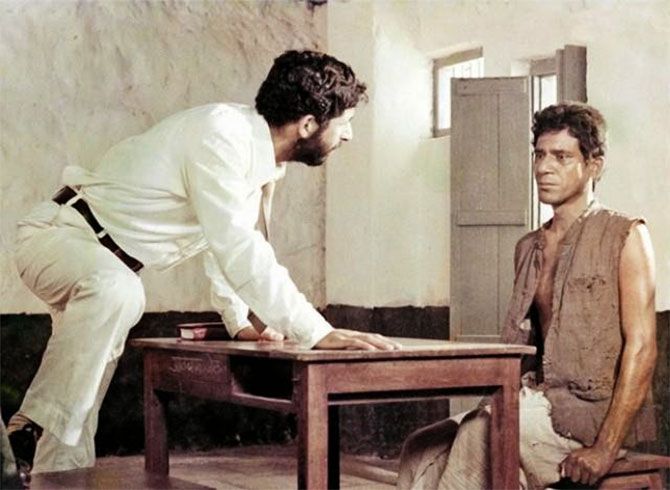
It was in the late 1970s -- new wave cinema was coming into its own and filmmakers needed competent actors to portray the realities of the time.
"There was an element of being at the time place at the right time. Directors needed competent actors to play the everyday man," says film critic and author Mayank Shekhar. "Here was this hardworking actor, who had not just trained in theatre at the NSD but also in films at the FTII (Film and Television Institute of India). He had a great CV. Possibly the only other person who had an equally good CV was Naseeruddin Shah."
Between 1980 and 1983, Puri, in some ways, became the voice of Vijay Tendulkar, who wrote both Aakrosh and Ardh Satya.
Some like Kendre believe that Puri not just brought tremendous credibility to NSD's training programme but also broke the notion that an average Indian actor needed to have a certain kind of looks and physique.
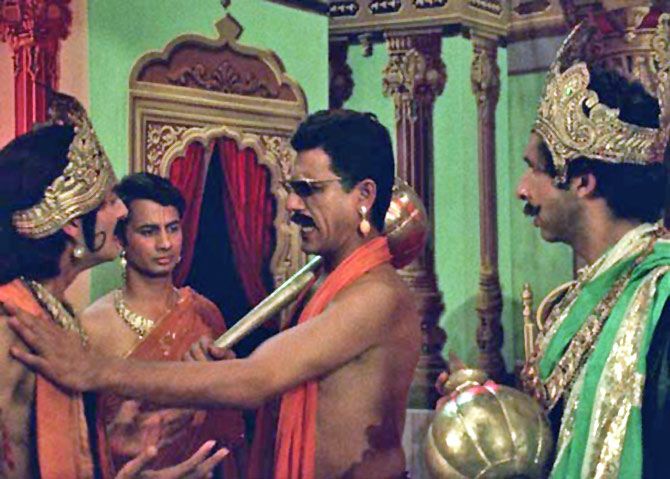
In his initial years, Puri had to struggle against tremendous resistance from the Indian film industry due to his unconventional looks, especially his pockmarked face.
"He gave aspiring actors the confidence that if you had the talent and the shiddat, you could make it big," says Kendre.
In some ways, he paved the way for actors like Pankaj Kapur, Manoj Bajpayee, Irrfan Khan and Nawazuddin Siddiqui.
"They say that today the audience is accepting faces like Nawazuddin, but Puri did it way back in the 1970s, at a time when there was no marketing or social media of today," says filmmaker Sudhir Mishra who directed him in the critically acclaimed Dharavi.
"Ardh Satya ran for 25 weeks. Jaane Bhi Do Yaaro ran for 56 weeks at Sheila Cinema in Delhi's Paharganj. That's incredible."
In his opinion, Puri brought out the poetry of the ordinary face.
He made viewers forget about the ordinariness of it, transforming it into something charismatic.
"He didn't give a damn. He did the main part in Ardh Satya and then went on to do a supporting role in Jaane Bhi Do Yaaro, where he played an older character. Our job is to make the younger audience revisit his films, to view him like the star he was," says Mishra who credits Puri and Shah as the reasons for seeking a career in cinema.
He recalls coming to Delhi at the height of winter to simply watch a play starring either of the two.
"I was in school at the time. That was the kind of hero worship that he inspired in me," he says.
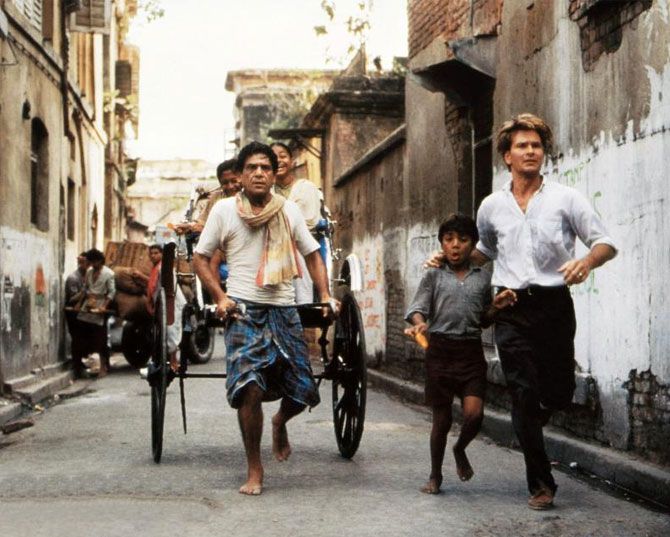
Puri is also credited as one of the first Indian actors to make an impact on international cinema, with films such as City of Joy, East is East, My Son The Fanatic, and more recently, The Hundred-Foot Journey, in which he starred with Helen Mirren.
Shekhar feels that he got lucky in an odd sort of a way. Even though he had barely a minute's role in Richard Attenborough's Gandhi, when the movie won the Academy Award, the clip that was shown featured Puri. That got him noticed.
"Then he did City of Joy in 1992 by Roland Joffé in a lead role alongside Patrick Swayze. That was a big budget mainstream film and made him a recognisable face," says Shekhar.
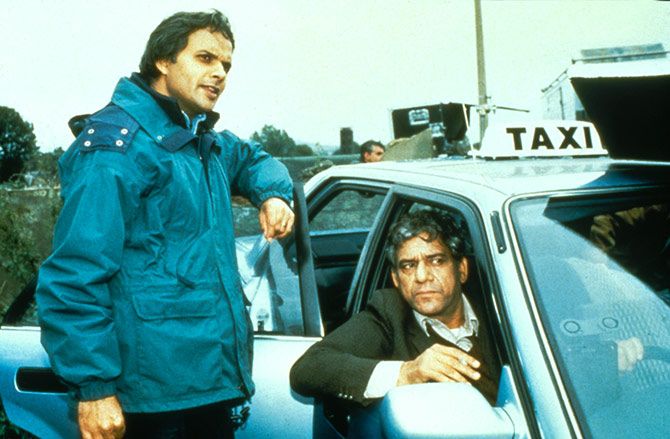
In fact, critics like him believe that some of Puri's best works in the last decade or so have come from international cinema, instead of from India where he had been turned into a lampooned sort of a figure.
"The Hundred-Foot Journey had some of the biggest names backing it such as Steven Spielberg and Oprah Winfrey. I am amazed why it didn't travel as much as it should have. But that's his serious last great performance," says Shekhar.
He feels My Son The Fanatic remains one of Puri's most underrated performances.
The film, based on Hanif Kureishi's novel, is a moving account of the early rise of hardcore fanatical viewpoint developing in migrant communities in Great Britain.

In the last couple of years, Puri made news for his tumultuous personal life as well, with reports of him being upset with his wife, Nandita, after she revealed some of his sexual encounters in the biography, Unlikely Hero: The Story of Om Puri.
His statement in the wake of the Uri attack, 'Who had asked the soldiers to join the army? Who told them to pick weapons?', also kicked up quite a controversy, with demands for an apology from the actor.
Kendre, who came to know Puri quite well after moving to Mumbai, feels the actor was very serious about his life and about what was happening around him.
"He spoke his mind. Whether you liked it or not was another story. But not many know that he had this subtle humour. You met him for the first time and instantly became friends with him," he says.
Puri's greatness, Mishra adds, lay in the gullibility and porousness of his acting. "This is a passing of a great man. This is the passing of a hero."











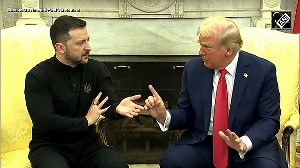
 © 2025
© 2025